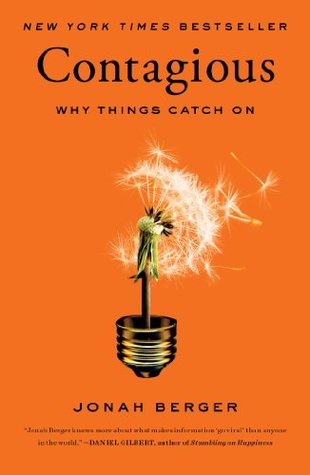More on this book
Community
Kindle Notes & Highlights
Rather than harping on features or facts, we need to focus on feelings; the underlying emotions that motivate people to action.
Write down why you think people are doing something. Then ask “Why is this important?” three times. Each time you do this, note your answer, and you’ll notice that you drill down further and further toward uncovering not only the core of an idea, but the emotion behind it.
When trying to use emotions to drive sharing, remember to pick ones that kindle the fire: select high-arousal emotions that drive people to action. On the positive side, excite people or inspire them by showing them how they can make a difference. On the negative side, make people mad, not sad.
More anger or more humor led to more sharing.
Thus any sort of arousal, whether from emotional or physical sources, and even arousal due to the situation itself (rather than content), can boost transmission.
If situational factors end up making us physiologically aroused, we may end up sharing more than we planned.
rather than quoting statistics or providing information, we need to focus on feelings.
behavior is public and thoughts are private.
People were more influenced by others’ purchases in places like Los Angeles and Miami, where it is easier to see what others were driving. Social influence was stronger when behavior was more observable.
Public visibility boosts word of mouth. The easier something is to see, the more people talk about it.
The more public a product or service is, the more it triggers people to take action.
As with many powerful tools, making things more public can have unintended consequences when not applied carefully. If you want to get people not to do something, don’t tell them that lots of their peers are doing it.
People like to pass along practical, useful information. News others can use.
Offering practical value helps make
If Social Currency is about information senders and how sharing makes them look, Practical Value is mostly about the information receiver.
The way people actually make decisions often violates standard economic assumptions about how they should make decisions.
So using the word “sale” beside a price increased sales even though the price itself stayed the same.
restricting availability through scarcity and exclusivity makes things seem more valuable.
If the product’s price is less than $100, the Rule of 100 says that percentage discounts will seem larger.
narrower content may actually be more likely to be shared because it reminds people of a specific friend or family member and makes them feel compelled to pass it along.
while broadly relevant content could be shared more, content that is obviously relevant to a narrow audience may actually be more viral.
Our desire to share helpful things is so powerful that it can make even false ideas succeed. Sometimes the drive to help takes a wrong turn.
We need to make it clear why our product or idea is so useful that people just have to spread the word. News you can use.
people don’t think in terms of information. They think in terms of narratives. But while people focus on the story itself, information comes along for the ride.
There’s a big difference between people talking about content and people talking about the company, organization, or person that created that content.
Virality is most valuable when the brand or product benefit is integral to the story. When it’s woven so deeply into the narrative that people can’t tell the story without mentioning it.
Contagious products and ideas are like forest fires. They can’t happen without hundreds, if not thousands, of regular Joes and Janes passing the product or message along.


